The F-21B "Mufasa"

Welcome to the hangar, pilot. The F-21B "Mufasa" awaits your command. Master its speed and agility, and you will dominate the skies.
History
The Kfir ("Lion Cub" in Hebrew) is an Israeli multirole fighter developed by Israel Aircraft Industries (IAI) in the 1970s.
It was based on the French Dassault Mirage 5, but heavily modified with Israeli avionics and an American General Electric J79
turbojet engine — the same engine used in the F-4 Phantom II. These changes made the Kfir faster and more powerful, better
suited to Israeli Air Force needs.
In the early 1980s, the U.S. Navy and Marine Corps leased 25 modified Kfir C.1s under the designation F-21A. These aircraft were
used by Aggressor Squadrons to simulate Soviet fighters like the MiG-23 during air combat training — specifically at Top Gun
(Navy Fighter Weapons School) and similar training programs. The F-21A was ideal for this because of its high speed, agility,
and small radar signature, helping American pilots practice against realistic threats.
The model you will be flying, the Kfir C.10, was never operated by the U.S. Navy. However, in this scenario, it will be
represented as the hypothetical F-21B.
General Characteristics
| F-21B "Mufasa" (Kfir C.10) | |
|---|---|
| Length | 15.65 m (51 ft 4 in) |
| Wingspan | 8.22 m (27 ft 0 in) |
| Empty weight | 7,414 kg (16,345 lb) |
| Gross weight | 10,114 kg (22,298 lb) |
| Powerplant Max Dry Thrust Max Afterburner Thrust |
General Electric J79-GE-17 4890 kgf (10778 lbf) 8460 kgf (18645 lbf) |
| Maximum Speed Mach Limit |
2257 km/h (1218 knots) 2.5 |
| Armament | 2× DEFA 552A cannon (140 rpg) 2x Python-3 Short Range Infrared Air-to-Air Missile 2x Derby Active Radar Homing Air-to-Air Missile |
| Avionics | Elta EL/M-2052 AESA Radar |
UI Layout
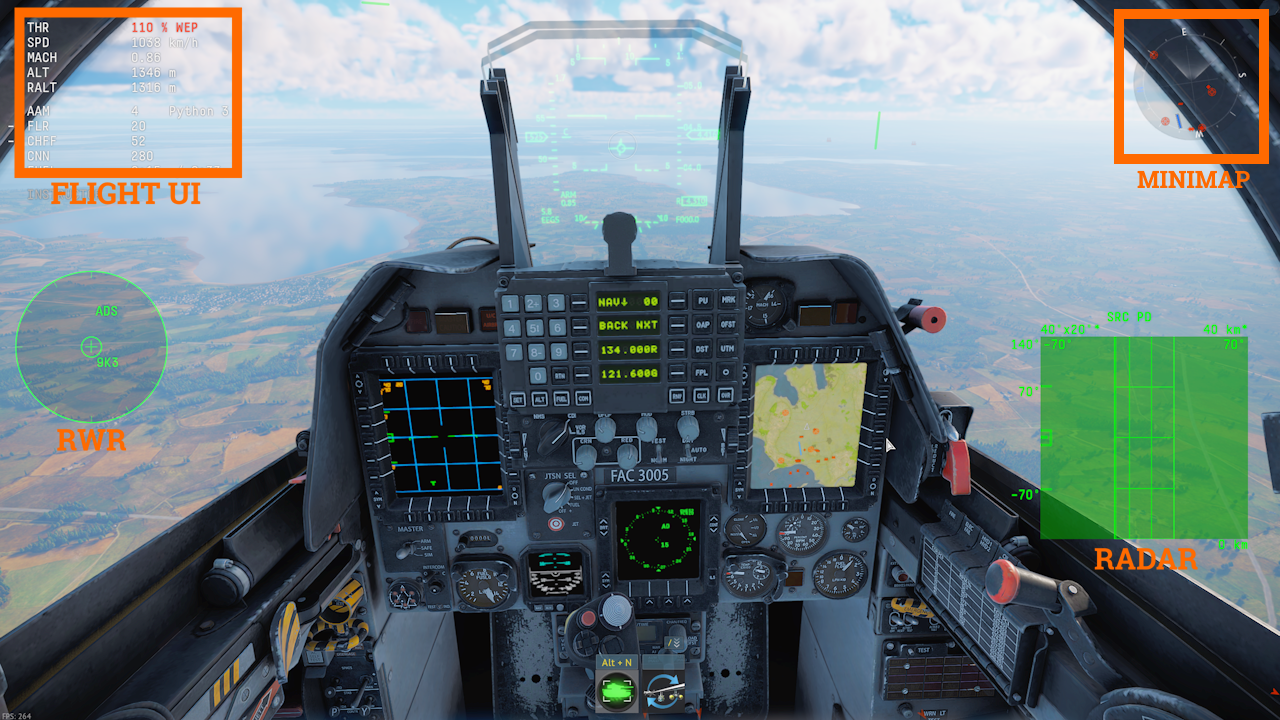
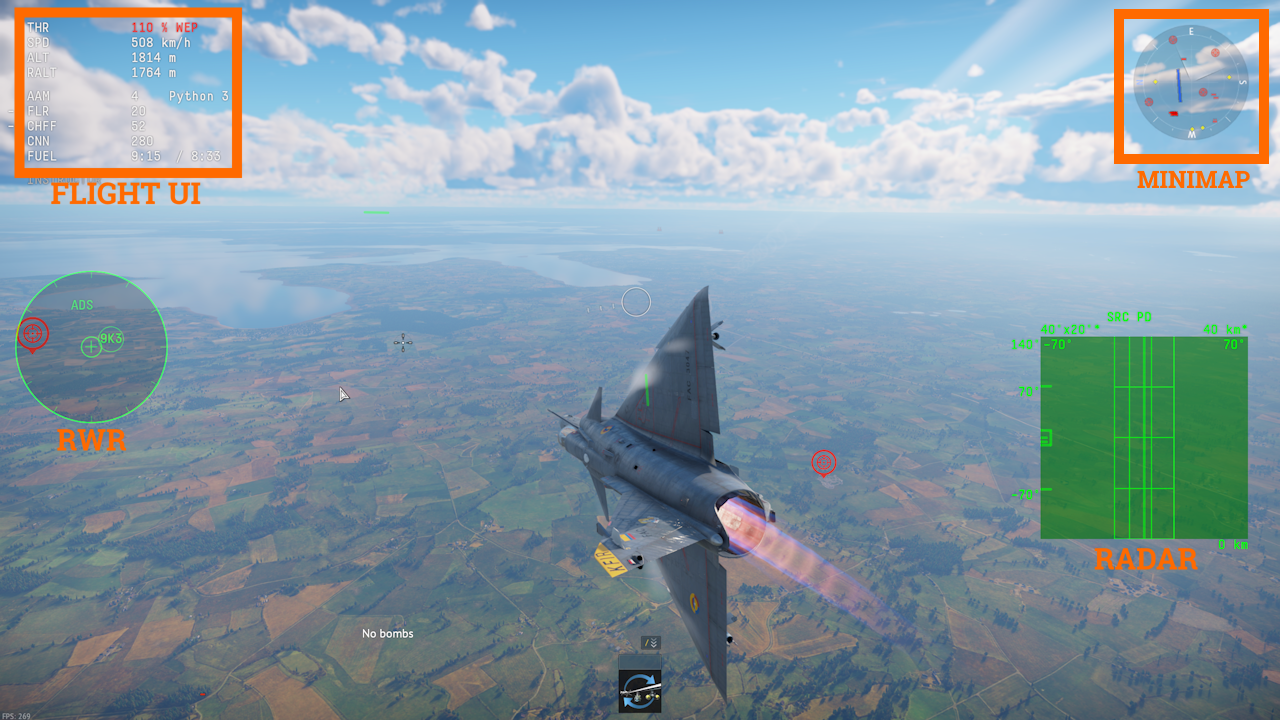
Upper Left: Flight Info UI
No matter if you're in the cockpit or third person view, all the relevant information need to fly is displayed on the game UI. At the upper left, you can see the respective measurements:
- Thrust Percentage (110% means afterburning)
- True Airspeed
- Mach Number
- Altitude
- Radar Altitude
- Anti-Air Missiles: 4, Python 3 Selected
- Flares: 20
- Chaff: 52
- Cannon Rounds: 280
- Fuel: 9:15 Internal, 8:33 External
Left: Radar Warning Reciever UI
On the far left, you can see a green circular indicator. This is your radar warning reciever (RWR). This will be described in the BVR guide.
Upper Right: Minimap UI
The minimap will only display the location of the bandit during the third person section. They will appear as a red diamond.
Right: Minimap UI
The element on the far right displays the radar scope. This will be described in the BVR guide.
Cockpit HUD
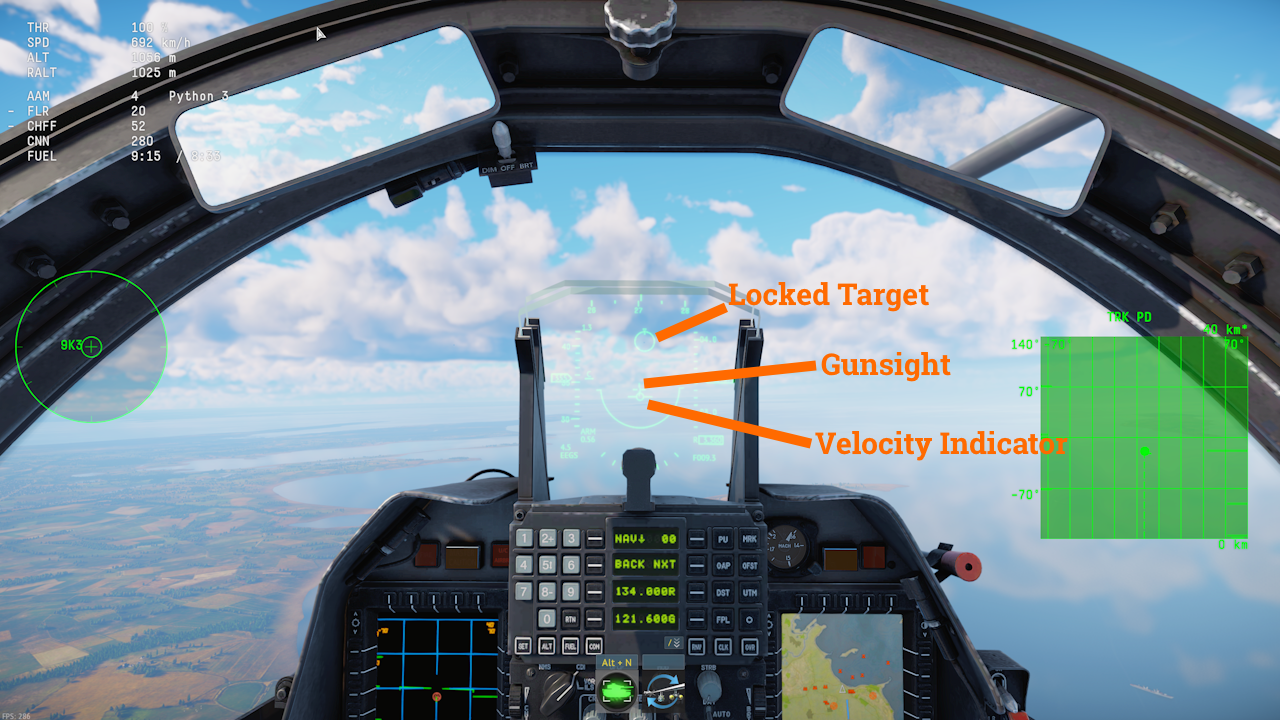
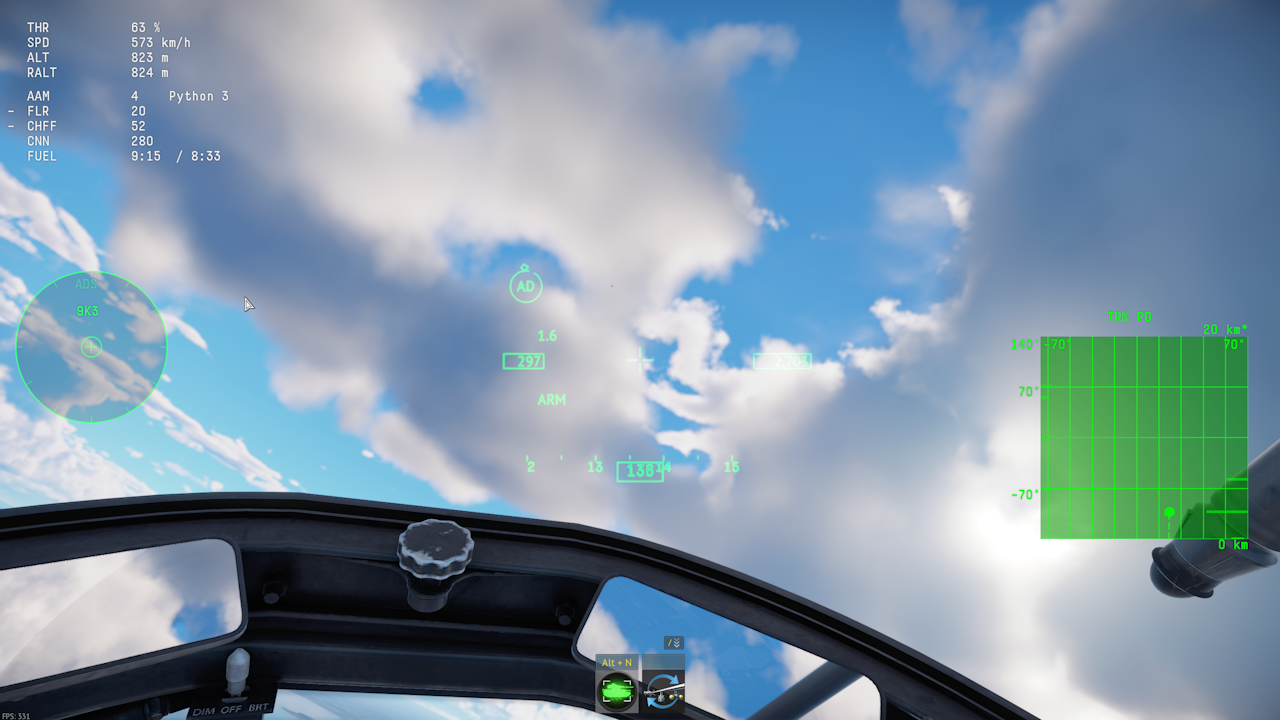
There are two places you can see a heads up display (HUD). One is located at the front of your cockpit, and contains your gunscope.
The second is by looking literally anywhere else — the F-21B is equiped with a helmet mounted sight, allowing pilots to retain their
HUD no matter where they look. You can safely ignore essentially all the information, as the flight info UI is always available in the
upper left.
Breaking down the HUD in the cockpit, we can isolate two markers that are very important, and a third which is important to point out.
- Locked Radar Targets - marked with a circle
- Gunsight - A "+" symbol, points out where your guns will shoot
- Velocity Indicator - Commonly mistaken with the gunsight, this just indicates where your velocity vector is pointing
Controls - X52
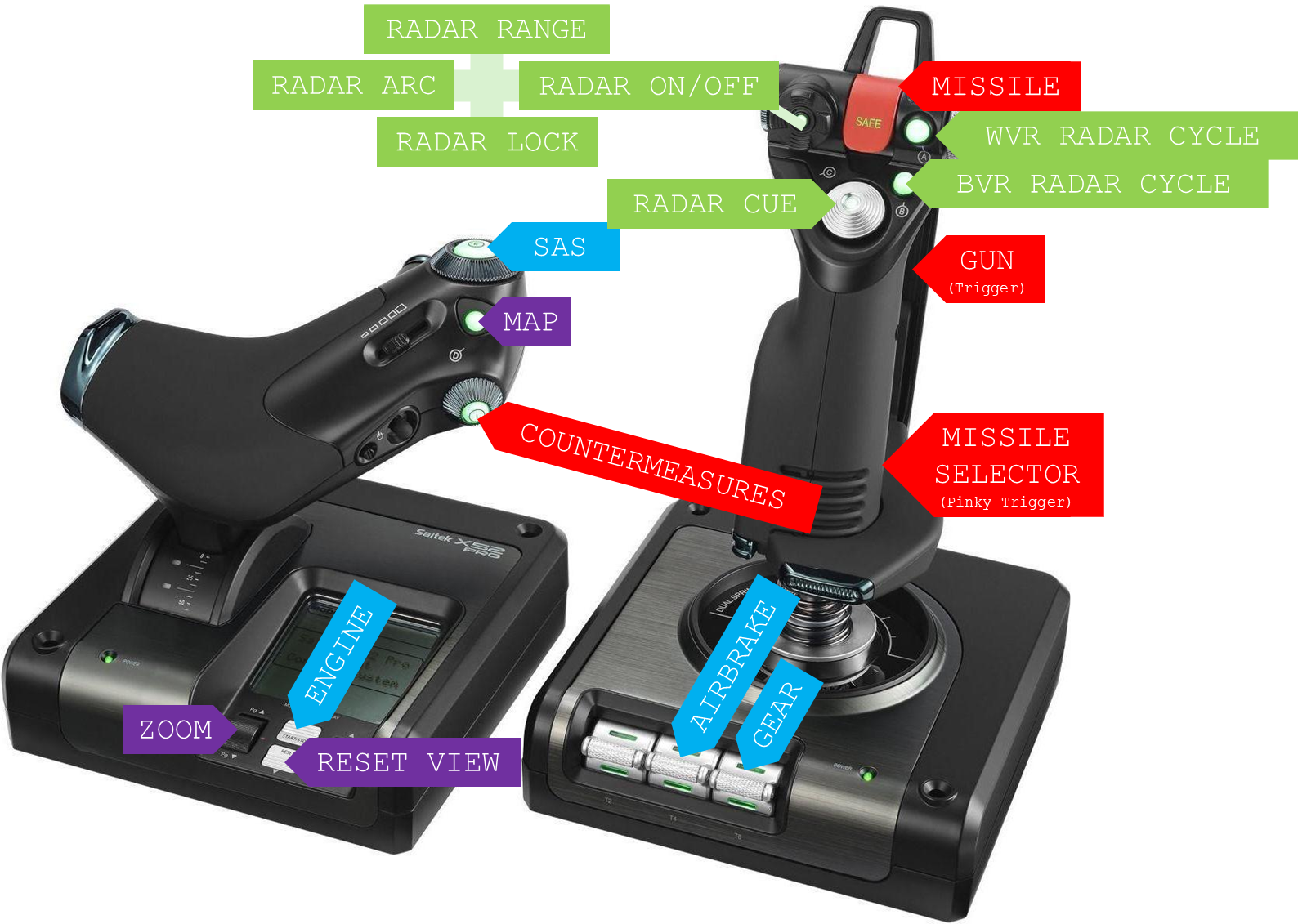
The control schema for the X52 HOTAS is shown above. The color coding goes as follows:
- Red: Weaponry Controls
- Green: Radar System Controls
- Blue: Flight Controls
- Purple: View Controls
Controls - Warthog
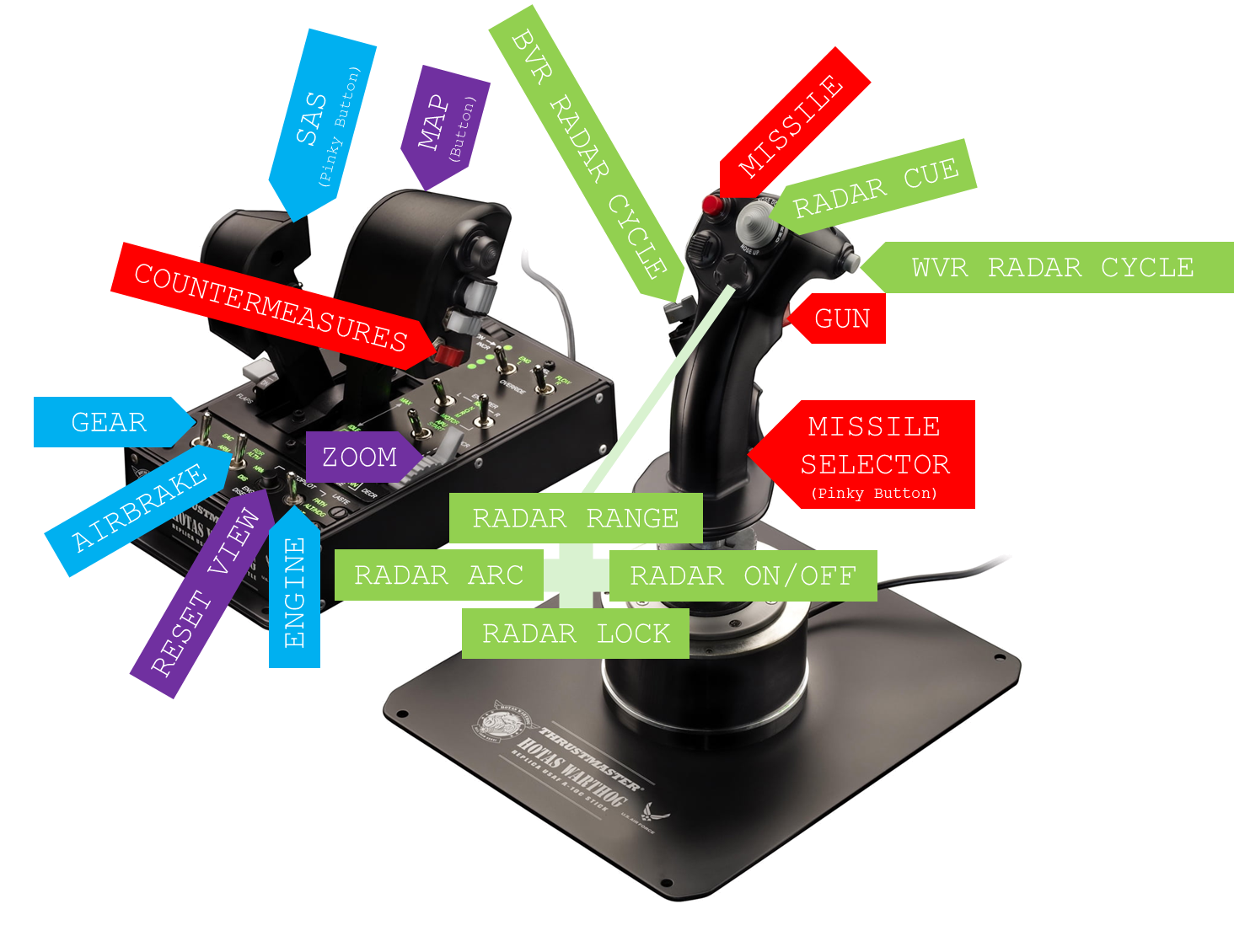
The control schema for the Warthog HOTAS is shown above. The color coding again goes as follows:
- Red: Weaponry Controls
- Green: Radar System Controls
- Blue: Flight Controls
- Purple: View Controls
Final Words
Well done on completing the Aircraft Guide. You now have the foundational knowledge necessary to operate effectively and build advanced skills.To continue your development, proceed to the BVR Guide and Dogfight Guide, where you will find more detailed instruction on air combat tactics and maneuvers.
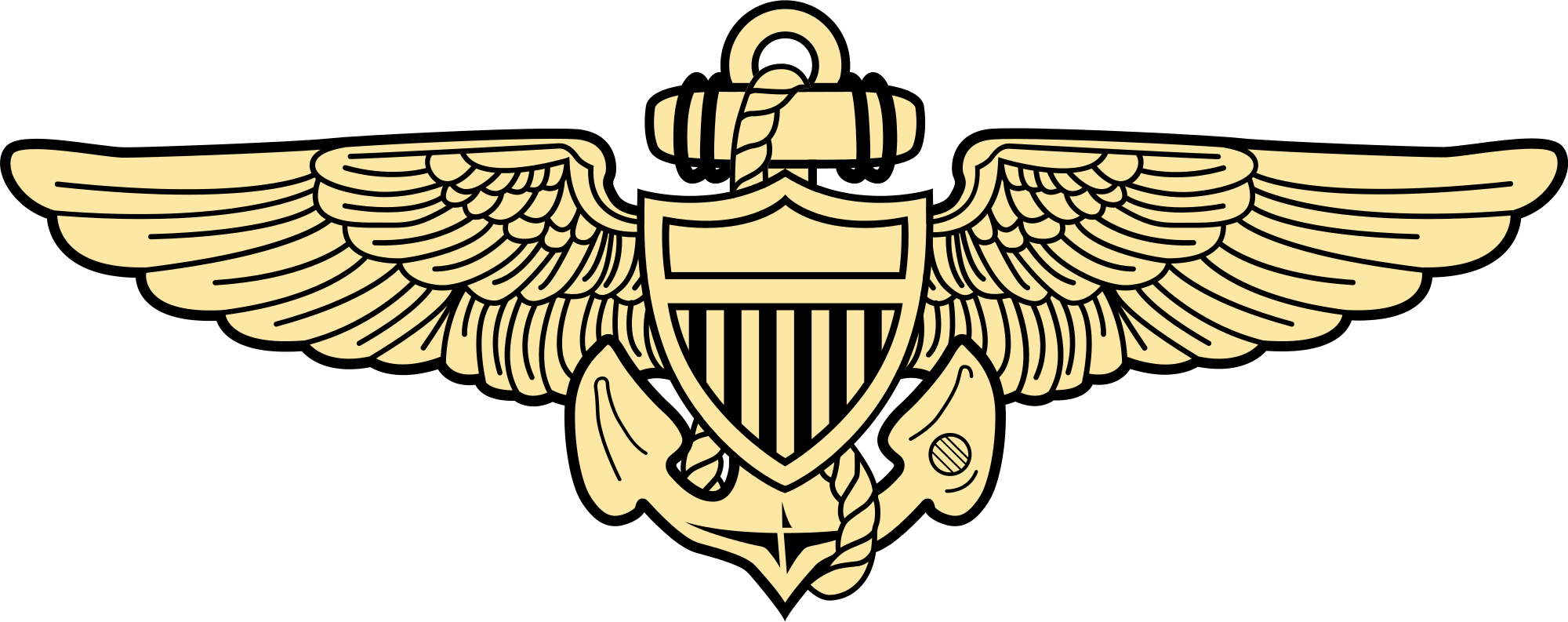 Naval Aviation
Naval Aviation